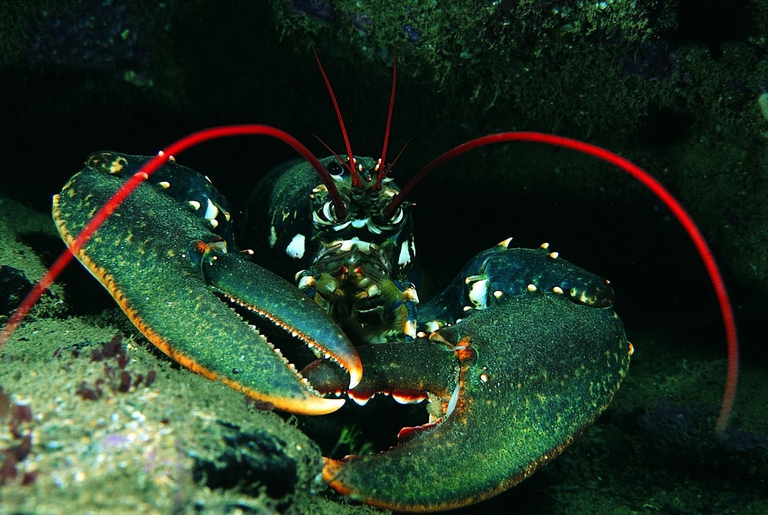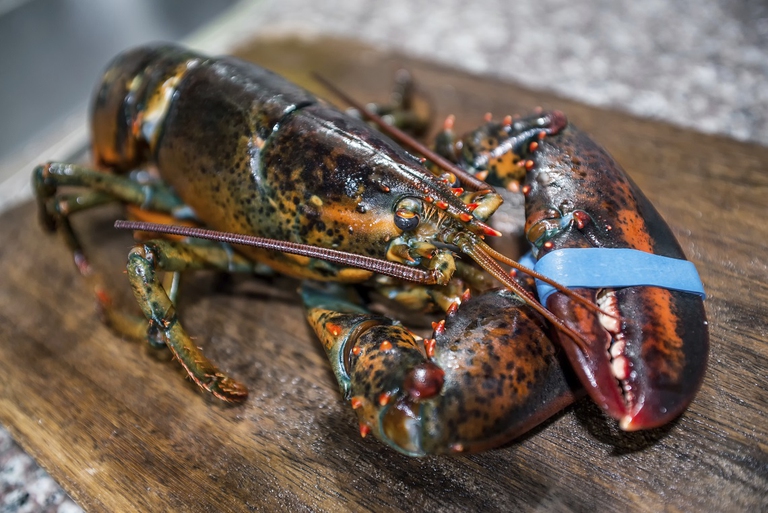
Our species took its first steps in a world covered in trees. Today, forests offer us sustenance, shelter, and clean the air that we breathe.
In Canada un gruppo di monaci buddisti ha acquistato numerose aragoste destinate ad essere mangiate nei ristoranti e le ha liberate.
More than 600 pounds of lobster, destined to be boiled alive, are back to their habitat. A group of monks from the Great Enlightenment Buddhist Institute Society, a Buddhist organisation in Prince Edward Island, Canada, has bought 600 pounds (272 kilogrammes) of lobster to release them back into the ocean.
“This whole purpose for us is to cultivate this compassion toward others,” said Venerable Dan, a spokesman for the monks. It doesn’t have to be lobsters, it can be worms, flies, any animals. “If your loved ones were in this situation, what would they like you to do? To give them a helping hand and put them back to where they feel comfortable and we believe if everybody’s able to do that, it will become a better place, a more harmonic place.”
The monks’ act, indeed, has no religious or food motivations, but it was driven by the respect for life. “We respect everyone’s dietary choice, so we’re not doing this to convert everybody to be vegetarians or vegans,” he added. Before freeing the lobsters, the monks prayed to the Buddha. “There’s no need of doing ceremonies or being Buddhist to practice compassion and be kind to all the living beings we share our planet with,” said Venerable Dan.
The lobsters – bought at local markets – have been freed from the laces blocking their claws and released in a stretch of ocean with no cages. “Fishermen actually found us a better place to release lobsters so they won’t be captured again,” said a member of the Great Enlightenment Buddhist Institute Society.
The noble gesture conceals a contradiction, though. Monks have bought the animals and, in this way, they have fuelled the fishing and selling of lobsters. Monks have thus stimulated a market that uses to price living beings. The solution is probably different, but a similar act could awaken consciences and help see the world with the eyes of a lobster.
Siamo anche su WhatsApp. Segui il canale ufficiale LifeGate per restare aggiornata, aggiornato sulle ultime notizie e sulle nostre attività.
![]()
Quest'opera è distribuita con Licenza Creative Commons Attribuzione - Non commerciale - Non opere derivate 4.0 Internazionale.
Our species took its first steps in a world covered in trees. Today, forests offer us sustenance, shelter, and clean the air that we breathe.
Poachers in Africa are encroaching on wildlife land and killing rhinos in travel hot spots now devoid of visitors due to the coronavirus pandemic.
Il corno del narvalo è un dente, molto sensibile, e non viene utilizzato per infilzare il cibo, come una sorta di kebab marino.
Actor and environmental activist Leonardo DiCaprio has contributed two million dollars to a fund to protect Virunga National Park in Congo from threats such as terrorism, the coronavirus and poaching.
For the first time in seventeen years, Iceland’s two main whaling companies won’t resume whale hunting. The announcement concerns this year’s season but could carry into the future.
The relationship between the coronavirus and wildlife is complex: while the pandemic may lead to a reduction in the illegal trade in wild animals, it may also encourage it in other respects.
The largest coral reef in the world is severely threatened by climate change, but researchers are developing strategies that could contribute to saving the Great Barrier Reef.
NGO Free the Bears has opened a mountain sanctuary for moon bears in Laos. With the government’s help, it aims to close all bile farms by 2022.
Seychelles have extended its marine protected area, which now covers over 400,000 square kilometres, an area larger than Germany.









